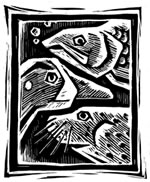- Home
- Restoration Projects
- Project Search
- Potential Impacts of Oiled Mussel Beds on Higher Organisms: Contamination of Black Oystercatchers Breeding on Persistently Oiled Sites in PWS 94020
Project Information
Title: Potential Impacts of Oiled Mussel Beds on Higher Organisms: Contamination of Black Oystercatchers Breeding on Persistently Oiled Sites in PWS 94020
Project Year and Number: 1994: 94020
Other Fiscal Years and Numbers for this Project: 1992: R103-A, 1992: R103-B, 1992: R103-2
Principal Investigator (PI): Brad Andres (US Fish & Wildlife Service)
Managing Agency: USFWS
Assisting Personnel: None
Research Location: Prince William Sound
Restoration Category: Monitoring
Injured Resources Addressed: Black Oystercatchers
Abstract: As a continuation of a previous project, this study will continue individual and population monitoring to determine the magnitude and duration of chronic effects of the EVOS on black oystercatchers in Prince William Sound (PWS). Black oystercatchers do not avoid feeding in or delivering prey to chicks from persistently oiled substrates. Previous data indicates that despite being fed more biomass, chicks raised at persistently oiled nest sites grow slower that chicks at unoiled nest sites. Exposure to oil will be documented by observing where birds forage, what they eat, and by analyzing chick feces for hydrocarbon contamination. Changes in the breeding population of black oystercatchers in oiled and unoiled areas of central PWS will be monitored.Proposal: Not Available
Reports:
Final Report: Not available. For current status, please contact us.
Publications from this Project: None Available
